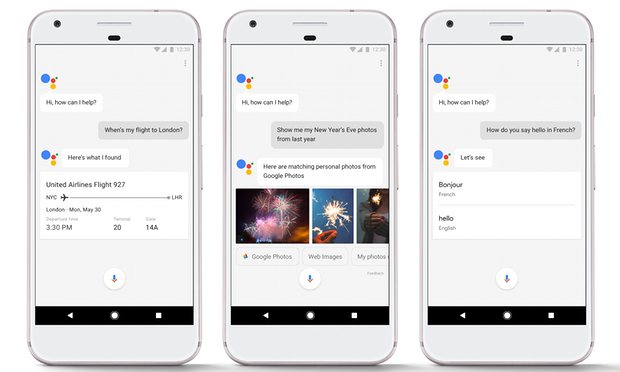A couple of weeks ago now, Google announced their move into the hardware market by launching their own phone (amongst other devices). The response has been huge and is set to be a serious contender in the mobile phone market. I believe this is the first big step towards moving the emphasis from our physical tools to our virtual environments and fitting technology to our intuitions rather than our intentions.
![]()
It is amazing what huge news the release of a new mobile phone is, but when you think about it, it is little surprise. Our phones become a part of us and are our sense or connection to the virtual world and each other. But despite the (quite likely) perception that this is their strategy to increase revenues through hardware sales, I believe the implications of their strategy go much deeper.
A few of the key features of the phone are their artificial intelligence (AI) assistant and their unlimited, full resolution cloud backup of information on the phone. In fact, the only part of the phone that they really promote other than this is the camera and how fast the phone can charge. I believe that the entry into the hardware market allows Google to remove the value from the phone itself and create emphasis on the virtual experience. This is something that other providers are seemingly (yet) unable or unwilling to do.

The hardware we use for our phones is becoming less important. There was a time that the phone you purchased dictated what we got. Could it play polyphonic ring tones? Did it have a camera so you could video call? Everything you had on the phone was also near fixed on the phone. If you lost it, it was a big deal far beyond a financial pain.
I recently found an iPhone on the ground, which I promptly sought to identify the owner and return it to them. I was then confronted with a message that the phone was locked as it was reported lost, so I couldn’t find any data, details to contact the owner, or use it whatsoever. It now serves as a very expensive paperweight. The point of this being, that we place value on our experiences, memories and information, NOT the phone itself. Features such as unlimited free Google drive storage with Pixel and our identities residing outside of our devices reinforces this point.
This leads me to the idea that there is now a shift happening where emphasis is being removed from the physical tools we use and added to the environment and integration we have with the virtual. Our user interfaces will become less about a platform where independent and fragmented applications sit, and more about the ecosystems or environments we use. Observations about this movement were made over a year ago with Google and Google Now, essentially a strategy to move information out of bound apps and into the usable environment for the user.
“Apps put information in little cages you can visit when you feel like it. Google Now lets that information roam free, to find whomever might need it most.” – Wired
The Chinese born company LeEco and their launch into the North American market is a slightly different example, but does provide the seamless transition between devices and functions with their “platform first philosophy”. Simultaneously announcing a smartphone, TV, virtual reality headset, electric bicycle and self driving electric car all residing on their “open content platform”. This strategy again is an emphasis on the interface and human experience with their virtual environment.
I believe we are moving towards a new era of interaction with our virtual lives. Our interactions are now becoming based on intuition rather than intention, which is shown by these new ecosystems / environments. This approach is also prominent in the current trends in the design / user experience domains.
The emphasis becomes “what information are you trying to find?, rather than, “what app did you install to provide x information? and what device do you have to be on to find it?”. Admittedly technology like AI assistants are not quite there in providing truly intuitive experiences, but it is a step closer. Despite the current usability, emphasis is now on the seamless integration of our technological environments with our physical lives, and hardware is is just the gateway.
“The thing is when these capabilities emerge they’re kinda clunky and they don’t work very well so people dismiss it saying ‘well it doesn’t really work’. Then by the time it does work well, people say well it’s been doing that for a long time, it’s nothing new.” – Ray Kurzweil
No longer will we seek specific tools to extend capability, but we will more intuitively enrich our physical lives with the information and capabilities provided by our technological senses, feeding our physical senses. Technology and our exploration of the technological landscape is more seamlessly becoming a part of our identity and how we experience the world.